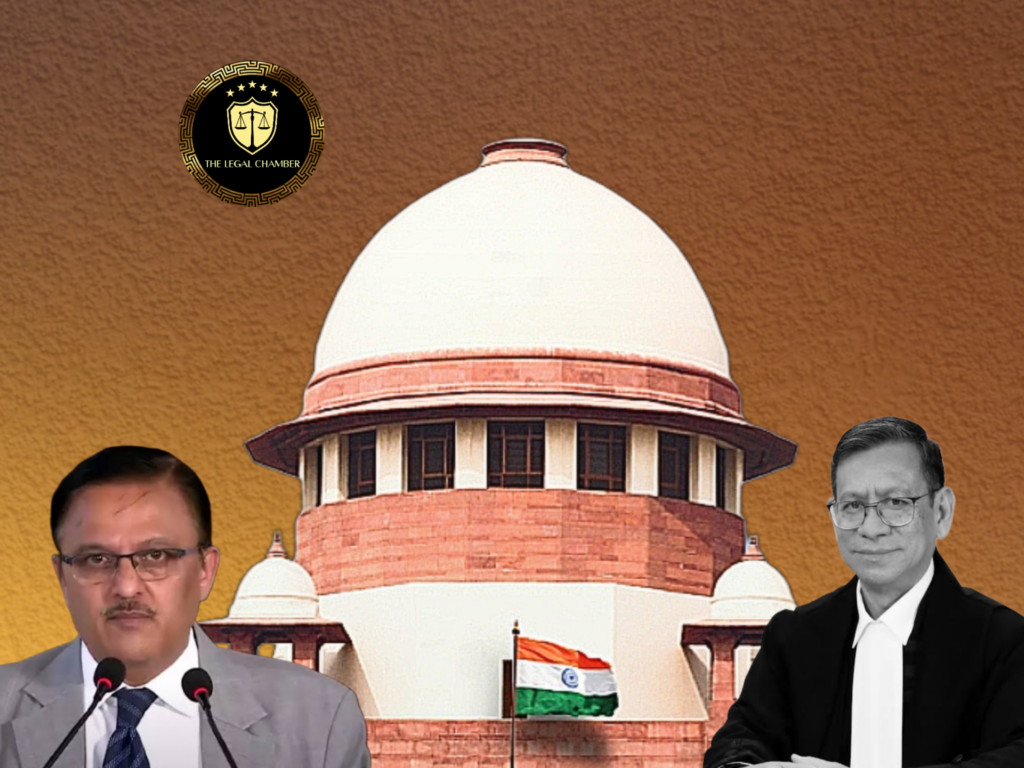
The Supreme Court held that denial of disability pension based on a Medical Board’s unreasoned opinion violates Regulation 423 of the Medical Services Regulations, which mandates detailed reasoning for attributability/aggravation findings. The Court emphasized strict compliance with procedural safeguards for service-linked disabilities and ruled that conclusory medical opinions without justification cannot deprive veterans of pensionary benefits. Liberal interpretation of beneficial provisions was underscored, with the burden shifting to authorities when discharge is initiated institutionally. The judgment reinforces the statutory requirement of causal connection between service conditions and disability, while mandating reasoned analysis from medical authorities.
Facts Of The Case:
The appellant, Rajumon T.M., served as a Sepoy in the Indian Army from 1988 until his medical discharge in 1998 after being diagnosed with schizophrenia. The Invalidating Medical Board at Command Hospital, Chandimandir, concluded that his condition—first noted in 1993 while posted at a peace station—was “constitutional” and neither attributable to nor aggravated by military service. Consequently, the Principal Controller of Defence Accounts (Pensions) rejected his disability pension claim in 1999. Rajumon challenged this before the Armed Forces Tribunal (AFT), Kochi, which upheld the denial in 2013, relying on the Medical Board’s opinion and precedents like Union of India v. Keshar Singh. The AFT emphasized that schizophrenia, developing during peacetime service without evidence of service linkage, did not qualify for pension under Regulation 173 of the Pension Regulations for the Army, 1961.
Aggrieved, Rajumon appealed to the Supreme Court, contending that the Medical Board’s opinion lacked reasons, violating Regulation 423 of the Medical Services Regulations, 1983, which mandates detailed justification for attributability/aggravation findings. The Court scrutinized the Medical Board’s cryptic conclusion (“constitutional personality disorder”) and noted blank sections in Form AFMSF-16, where clinical history and reasoning should have been recorded. It held that such unreasoned opinions could not justify denying pensionary benefits, especially when the disease manifested during service and no pre-enrollment history existed. The Court directed grant of disability pension, underscoring procedural fairness and liberal interpretation of welfare schemes for veterans.
Procedural History:
The case originated in 1998 when Sepoy Rajumon T.M. was medically discharged from the Indian Army after being diagnosed with schizophrenia. His initial claim for disability pension was rejected by the Principal Controller of Defence Accounts (Pensions) in January 1999. Rajumon’s first appeal was dismissed by the Appellate Committee in May 2000, following which he pursued administrative remedies through a Member of Parliament, only to receive a reiteration of the rejection in November 2009. In 2011, he approached the Armed Forces Tribunal (AFT), Kochi Bench, which in its January 2013 judgment upheld the denial of pension, relying heavily on the Medical Board’s opinion and precedent cases.
Dissatisfied with the AFT’s decision, Rajumon filed a civil appeal before the Supreme Court of India in 2022 (registered as Diary No. 20836 of 2022), which culminated in the landmark judgment of May 2025. The Supreme Court’s ruling not only overturned the AFT’s decision but also established crucial precedents regarding the mandatory requirement of reasoned Medical Board opinions in disability pension cases. This procedural journey spanned nearly three decades, reflecting the systemic challenges in military pension litigation.
Read Also: Supreme Court Clarifies Jurisdiction Over Bank Guarantees in Section 9 Arbitration Petitions
Court Observation:
In its landmark judgment, the Supreme Court made several critical observations that fundamentally reshape the adjudication of military disability cases. The Court emphasized that Regulation 423 of the Medical Services Regulations imposes a mandatory obligation on Medical Boards to provide detailed reasons supporting their conclusions about attributability or aggravation of disabilities, noting that the absence of such reasoning renders the opinion legally unsustainable. It observed that the Medical Board’s bare assertion of “constitutional personality disorder” for Rajumon’s schizophrenia, without any clinical history or analysis in Form AFMSF-16, violated procedural fairness and amounted to an arbitrary exercise of power.
The Bench highlighted that when a disease manifests during service with no pre-enrollment history, the benefit of doubt must favor the veteran, especially in mental health cases where the affected individual faces inherent challenges in substantiating claims. Significantly, the Court noted that pension authorities cannot mechanically rely on unreasoned medical opinions but must independently evaluate whether statutory conditions for pension entitlement are met. It also underscored the need for liberal interpretation of beneficial provisions like disability pension, drawing parallels with social welfare legislation. The judgment particularly stressed that when discharge is initiated institutionally (rather than by the servicemember), the burden shifts to authorities to justify denial of benefits through proper medical documentation. These observations collectively establish a robust framework for protecting veterans’ rights against perfunctory medical assessments.
Final Decision & Judgement:
The Supreme Court allowed the appeal and set aside the orders denying disability pension to the appellant. While not disturbing the appellant’s medical discharge, the Court directed the respondents to grant him disability pension with immediate effect along with all attendant benefits as per rules, though limited arrears to the last three years. The Bench specifically quashed (1) the Principal Controller of Defence Accounts’ rejection letter dated 04.01.1999, (2) the First Appellate Committee’s order dated 22.05.2000, and (3) the Armed Forces Tribunal’s judgment dated 17.01.2013.
The Court declined to remand the matter to the Medical Board after 27 years, noting it would cause further injustice. Justices Nongmeikapam Kotiswar Singh and Abhay S. Oka’s judgment established the precedent that disability pension cannot be denied based on unreasoned Medical Board opinions, reinforcing that such opinions must contain cogent analysis of attributability/aggravation as mandated by Regulation 423. The decision underscores the judiciary’s role in ensuring procedural fairness in military benefit cases while balancing institutional requirements with veterans’ welfare.
Case Details:
Case Title: Rajumon T.M. vs Union of India & Ors. Citation: (2025) INSC 644 Appeal Number: Civil Appeal No. 998 of 2025 Date of Judgment: May 7, 2025 Bench: Justice Nongmeikapam Kotiswar Singh & Justice Abhay S. Oka
Download The Judgement Here